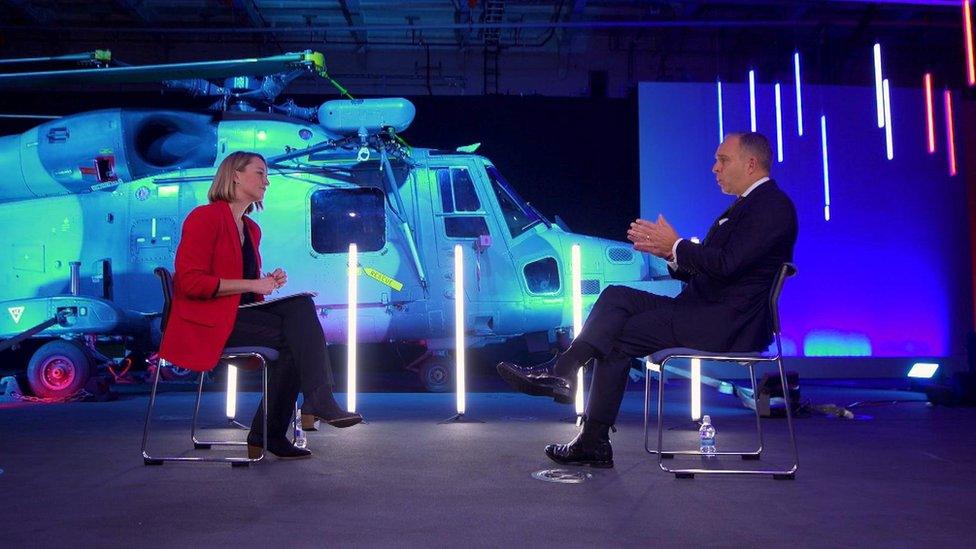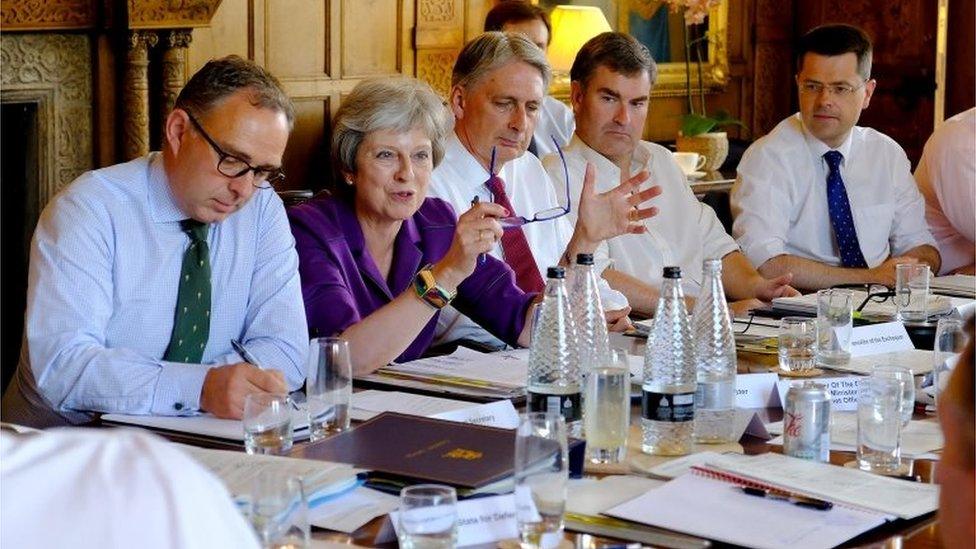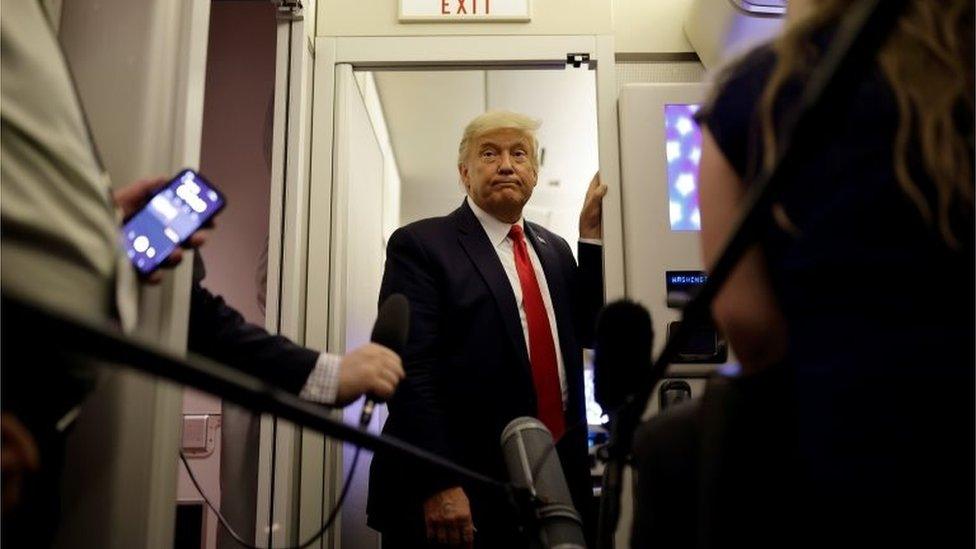Ex-civil servant boss Mark Sedwill makes concerns crystal clear
- Published

Lord Sedwill speaking with Laura Kuenssberg onboard HMS Queen Elizabeth
Surveying the Solent from the bridge of the vast Queen Elizabeth aircraft carrier, Lord Sedwill bursts out laughing.
Until only a few weeks ago he was at the helm of the government's handling of the coronavirus pandemic, the most senior civil servant in the country, the official who sat next, first to Theresa May and then Boris Johnson, during the cabinet.
And, if that wasn't enough, he was the national security adviser too.
His reason for laughing? When I asked him if he would rather still be in Whitehall or showing off the ship - the UK defence establishment's enormously expensive and advanced bit of kit - he couldn't contain his preference.
"I think you can tell!" he said, as he prepared to chair the Atlantic Future Forum, a government-backed conference being hosted from the carrier itself.
Relieved perhaps to be out of government? It seems that way. Ready to give up public service? Not so much.
While all he would say was that he was 'flattered' by the suggestion that he is being tipped as the next Nato boss when it comes up, he is obviously enthusiastically open to the idea that he could be the UK candidate for a job on the big international diplomacy circuit, where hanging out on aircraft carriers might even become a normal day at the office.
Lord Sedwill discusses President Trump's leadership, Covid and whether Dominic Cummings should have quit
And yet in his first interview since leaving one of the biggest jobs in the country, the man who was paid to give quiet careful advice is diplomatic with his language, certainly, but clear nonetheless.
While he takes pride in some of the government's response to the pandemic, he said there is a genuine question about whether it could have been better prepared and admitted it lacked the "exact measures" for a disease of this kind.
The picture he gives of the heart of government in the most intense moments in the crisis is of a tense place, where ministers and officials were scrambling to keep up with a changing reality where the nation's health and economy were both genuinely in danger.
And frankly, with all the uncertainty of handling a new disease, no one could be quite sure of the right thing to do.
For all that ministers have fumed privately, and hinted publicly, he is adamant that the government coped fairly well during a once in a generation crisis, not withstanding "genuine questions" about just how prepared the UK really was.

Lord Sedwill served under both Theresa May and Boris Johnson
He strikes a different tone however on his overall relationship with the political end of the government operation.
Lord Sedwill told us that Dominic Cummings' trip to County Durham during lockdown had clearly undermined the government's efforts to encourage the public to follow the rules.
And while he denied that he had been forced out of his job, he said briefings against him had been unpleasant, and that he was troubled by attacks on the civil service.
He acknowledged that his departure from government had probably been accelerated by the Covid crisis, but was adamant that the timing had been agreed with Boris Johnson, rather than him being unceremoniously shoved out.
But having been in charge during the departures of so many other mandarins, not just his own, he said it was wrong to suggest there was some kind of campaign in Whitehall against impartial officials, or that civil servants had to toe a political line.
Despite months of headlines, and exits from government like Sir Philip Rutnam's drama in the rain, Lord Sedwill's public take is less intense, although that may rankle with some of his former colleagues who genuinely fear the political climate makes it harder for them to speak truth to power.

Lord Sedwill describes Donald Trump as "a very unusual occupant of the White House"
What was striking however, and maybe not surprising given his early career in the Foreign Office, rather than in Whitehall, Lord Sedwill also takes aim further afield.
Although he was national security adviser until very recently, he suggests the UK government was "probably mistaken" in parts of its approach to Russia and China, warning against naivety in handling authoritarian regimes.
And, speaking to the BBC as he opened a defence conference, the Atlantic Future Forum, he called for American leadership to make western alliances work - branding Donald Trump, a 'very unusual occupant' of the White House.
Figures like Lord Sedwill don't make their names by making noise outside. They forge their reputations on the inside.
It is even surprising that, after this extraordinary period, he has chosen to open up. For one of country's former most senior diplomats, Lord Sedwill's words are careful. Yet he has made some of his concerns crystal clear.
